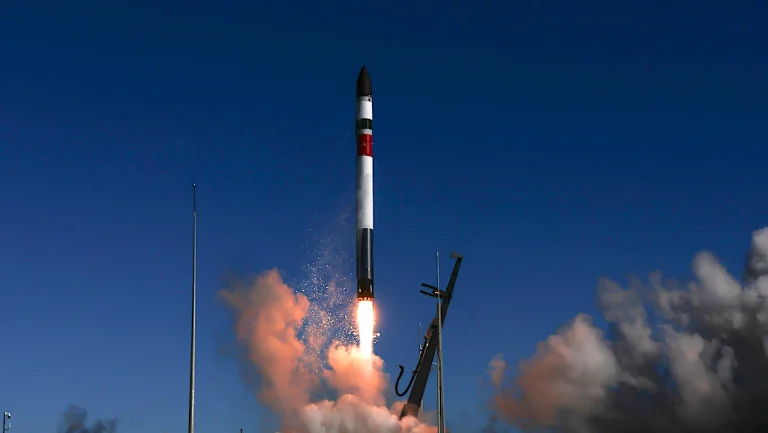The United States (U.S.) Commerce Department has unveiled plans to give Rocket Lab $23.9 million to greatly improve compound semiconductors that are employed in satellites and space vehicles. This funding will be from the Biden administration’s $52.7 billion chip manufacturing and research subsidy program that has already been launched and assists companies like Samsung Electronics, Intel, and TSMC.
SolAero Technologies Corp
The award will be helpful, particularly for the Rocket Lab’s division, SolAero Technologies Corp., which manufactures high-efficiency space solar cells that provide power for spacecraft and satellites. These solar cells are critical in sustaining communication and space technology activities. This funding will help SolAero achieve its goal of growing its compound semiconductor output by 50% over the next three years.
Rocket Lab’s Impact
Rocket Lab, established in 2006 by Peter Beck from New Zealand, is one of the two American companies that produce highly efficient compound semiconductors for radiation-resistant applications. These semiconductors are important for use in space. Rocket Lab’s solar cells are used in multiple U.S. space operations such as missile detection, the James Webb Space Telescope, NASA’s Artemis Moon missions, the Ingenuity Mars Helicopter, and the Mars Insight Lander.
Image Source: businesswire
Rocket Lab’s Neutron Rocket
Neutron is the development of Rocket Lab as a medium-lift two-stage rocket. Neutron is to transport payloads to LEO and will be targeting the increasing market of deploying mega constellation satellites. In the partially reusable configuration, it is expected to be able to lift 13,000 kg (28,700 lb.) to LEO.
Neutron will be partially reusable; this will help in cutting down the cost of launching. Although primarily aimed at launching satellite constellations, Neutron is also intended for supplying space stations in LEO orbits and can accommodate crewed missions as well. The rocket is 40 meters (131 feet) tall and has a 4.5-meter (14.7 ft) diameter fairing. It can take up to 2,000 kilograms to the Moon and Mars or 1,500 kilograms to Venus.
Besides its semiconductor technology, Rocket Lab has another claim to fame in launching satellites through Electron, its small rocket. Another launch vehicle under the company’s development is the reusable Neutron rocket, which is to launch a vast number of satellites into low orbit and conduct missions to Mars and Venus.
Rocket Lab’s Electron Rocket
Rocket Lab’s Electron is a two-stage, partially reusable orbital small launch vehicle built by Rocket Lab, an American aerospace company that has its branch in New Zealand. Electron’s Kick Stage provides microsatellites to specific and distinct orbits through its remarkable Kick Stage. It can fly in capacity as an on-demand or a shared service.
Endeavors encompass at least one plane/inclination, high altitude release, hosted payload accommodation, multiple maneuvers, and long duration/low altitude flight. Electron is the only reusable orbital class small rocket. Reloading the first stage makes it possible to achieve higher launch frequency and this helps to reduce costs.
Conclusion
Although the award is yet to be finalized, it brings to focus the role of specialty semiconductors in the enhancement of space exploration and communication. Rocket Lab is expected to have further expansion to meet the increasing demand for chips in the U.S. government space projects.

Note: You can reach us at support@scoopearth.com with any further queries.
Linkedin Page : https://www.linkedin.com/company/scoopearth-com/













